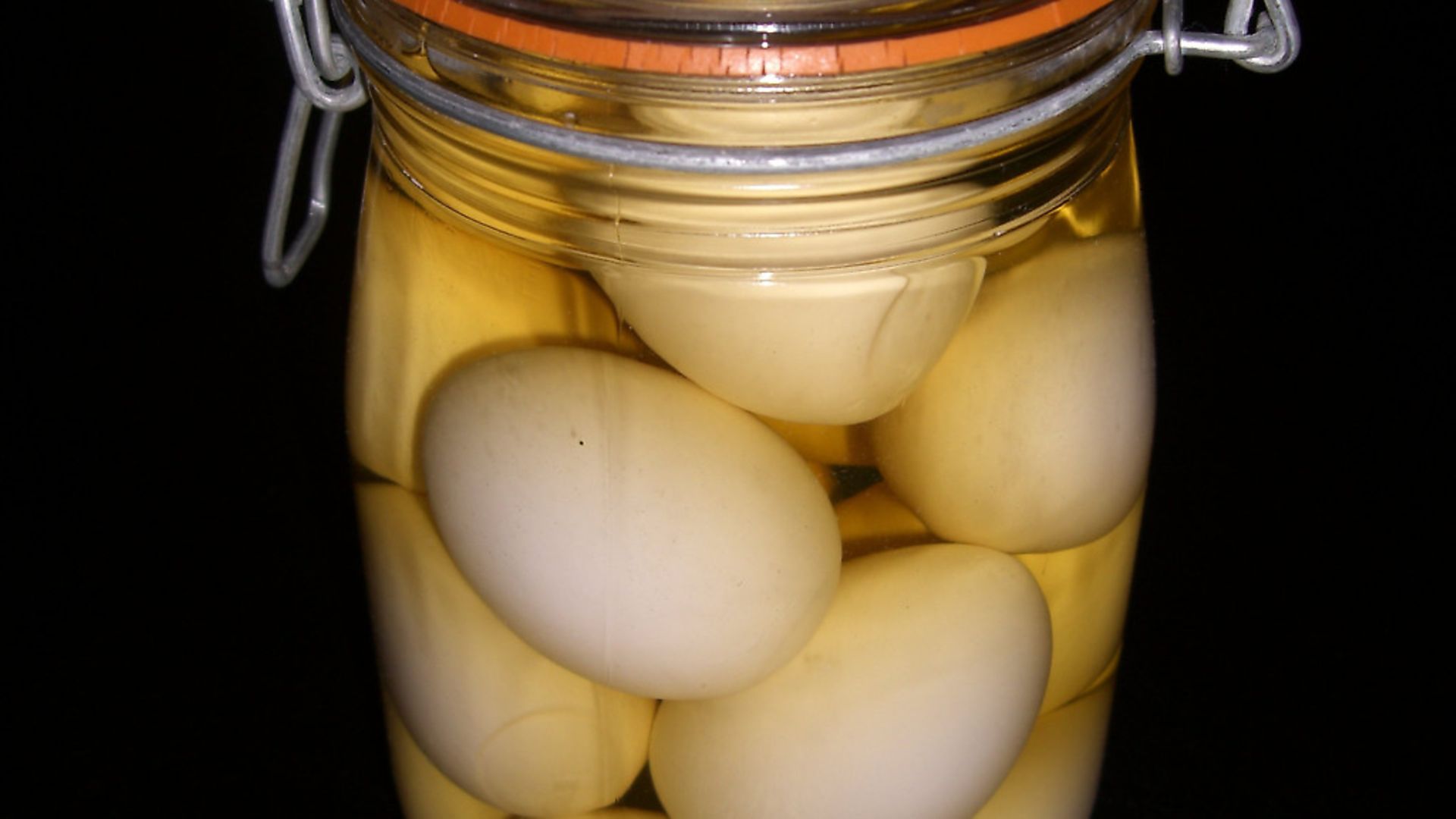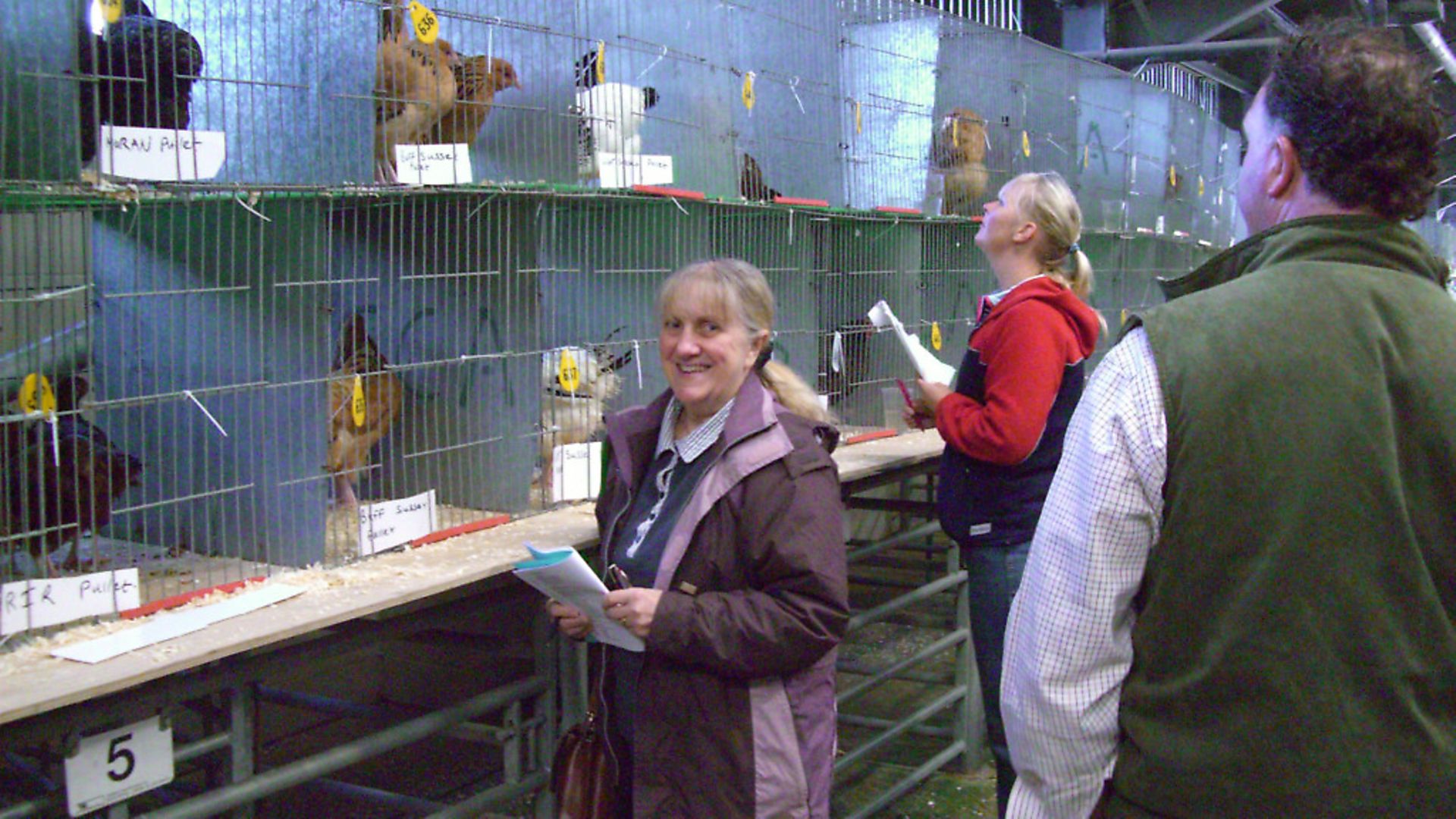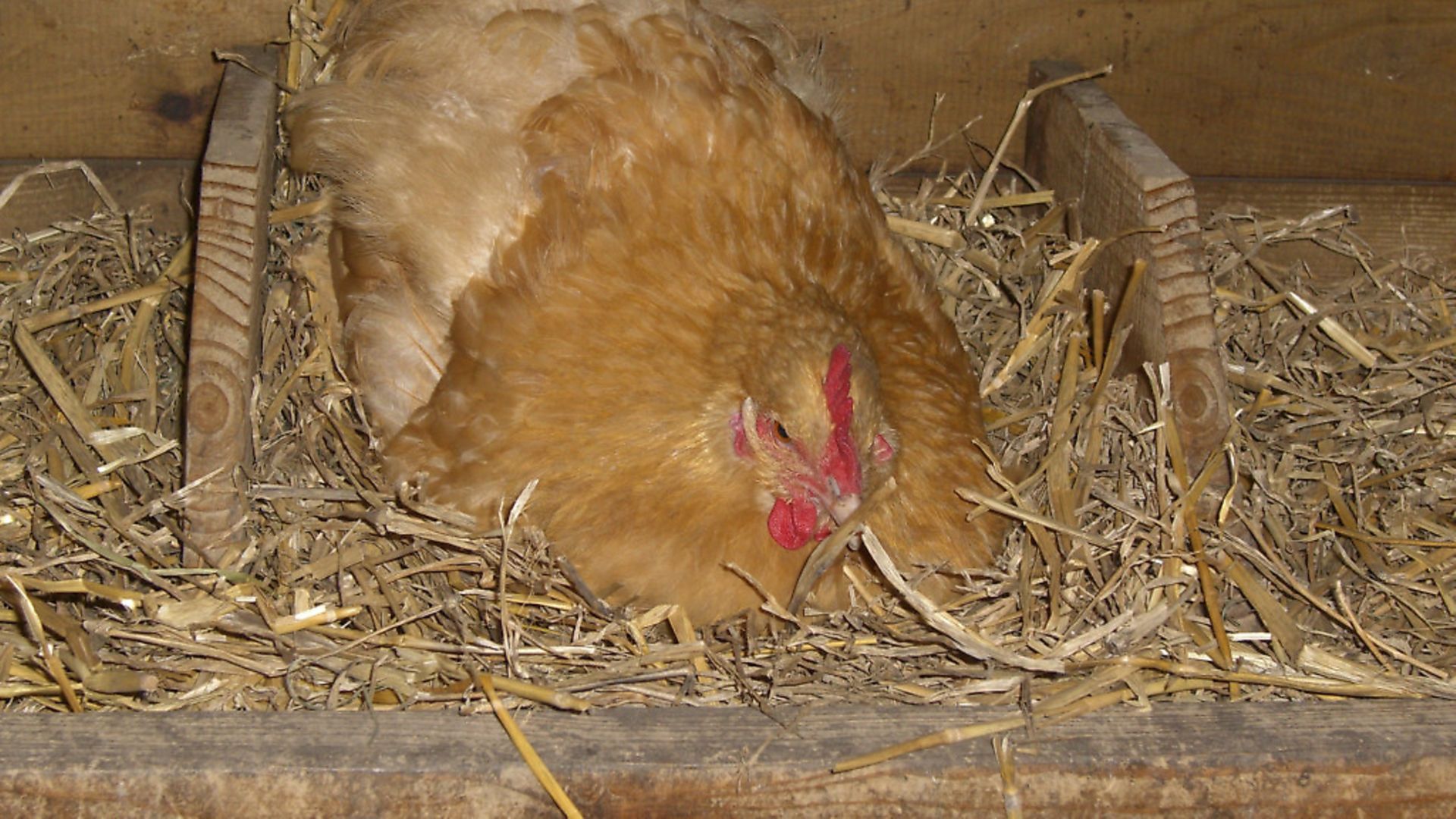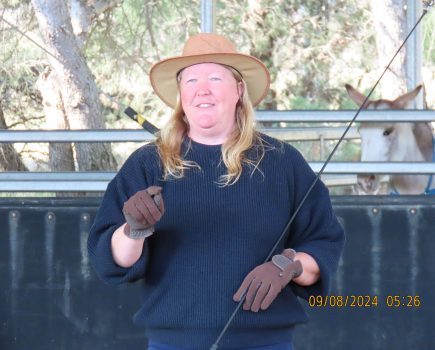Anne Perdeaux gives ideas on what to do with your egg-cess produce

It’s surprising how many eggs a few hens in full lay can produce. Sometimes the abundance is overwhelming, and unless you are practising for the Great British Bake Off, you may find yourself with an eggs-cess.
Selling your surplus isn’t difficult, but remember this bounty is seasonal and in autumn the cupboard will probably be bare. Before disposing of your eggy assets, ask yourself the following:
? Have you frozen some eggs? (Beat lightly with a little salt or sugar).
? Do you like pickled eggs? They are easy to make and you can vary the pickle to taste.
? What about baking cakes and quiches for the freezer?
? Are there any neighbours who need placating after a feathery invasion?

? Did your chicken-sitters find plenty of eggs last time they helped out?
? Will you be visiting friends this summer? Eggs make a lovely gift.
? Can you find any new ways to cook with eggs?
Still up to your neck in eggs? Time for your poultry to earn their pellets!
First count your chickens (and other poultry):
? If you have fewer than 350 birds, you can sell direct to consumers (‘farm gate sales’) without registering as an egg-producer.

? You’ll need to register if you want to sell at local markets and have more than 50 birds – although markets may have their own regulations too.
Bear in mind that registering as an egg-producer is separate from the requirement to register with DEFRA if more than 50 birds are kept.
Farm gate sales
You can sell eggs from your home, door-to-door, or even to colleagues at work:
? Eggs must be for the purchaser’s own use. If intended for re-sale to consumers (via a shop or hotel, for example), they must come from a registered producer and be graded at an egg-packing centre.

? Eggs mustn’t be described as Small, Medium, Large, or graded for quality (Class A).
? The terms ‘free-range’ and ‘organic’ have official standards, and shouldn’t be used unless you meet the relevant criteria.
Just be original when describing your eggs:
‘Fresh eggs laid by liberated hens!’
‘Bantam eggs – good things come in little packages!’
Selling at a local market
Check with your council for their regulations – you may need to register as an egg-producer even if you have fewer than 50 birds. This isn’t difficult, and you’ll be given an identifying number to stamp on the eggs. The first digit of this shows the way the hens are kept (O = Organic; 1 = Free Range; 2 = Barn; 3 = caged). Then comes the country of origin (UK), followed by the number allocated to your premises.
Although you can’t grade eggs by size or quality, for market sales egg-boxes must be labelled with:
?Your name and address
?A ‘best-before’ date (maximum 28 days from laying)
?Advice to keep eggs chilled after purchase
Despite the advice to customers, eggs aren’t refrigerated in the shops. This is a legal requirement to prevent changes in temperature during transportation.
Egg-boxes, labels and egg-stamps are available from poultry supply stores.
Further information – registering as an egg-producer
Registration is free and the form is on the DEFRA website. Click on “Egg-production site: registration”. This will take you to the form plus the guidance document: “Guidance on the legislation covering the marketing of eggs”. Have a look at this even if you don’t need to register – don’t be put off by its length as not all of it is relevant to small-scale producers.
Keeping records
Anyone selling eggs should keep records and the DEFRA guidance document includes a chart showing what is required. This includes details of laying hens, feed, medicines, eggs produced and sold.
File your receipts and other documents too.
Don’t forget the taxman! When you sell a box of eggs you are trading – so keep an account of income and expenses.
Selling as a registered producer
Once registered you can send eggs to a packing station – or even set one up at home so you can supply direct to local traders. The form to register as a packing station is on the DEFRA website. You’ll need some equipment and will have to be approved by the Local Authority.
Quality control
Even if you are just selling surplus eggs to the neighbours, you’ll want to establish a good reputation for your produce.
For interest, these are some of the industry regulations for Class A eggs (sold in the shell to consumers). Any that don’t meet these criteria are disposed of or processed commercially:
? The shell and cuticle must be of normal shape, clean and undamaged
? The air space height cannot exceed 6mm (4mm if marketed as ‘extra fresh’)
? When candled the yolk should appear as a shadow with no clear outline
? The yolk should be slightly mobile when the egg is turned, returning to a central position
? The white must be clear and translucent
? The germinal disc must not be developed
? Foreign matter or smell is not permitted
? Eggs must not be washed or cleaned
? Eggs may not be treated for preservation or chilled in artificial temperatures of less than 5°C
? Eggs must always be kept clean, dry and out of direct sunlight
Although you can’t see inside the shell without ‘candling’ apparatus (which uses a bright light to inspect the egg’s contents), it’s possible to maintain high standards:
? Ensure your hens are healthy, live in clean conditions and have a good diet.
? Don’t wash eggs for sale – prevent soiling by keeping nest-boxes clean and stopping hens from roosting in them.
? Evict broody hens from nest-boxes, and don’t sell eggs they’ve sat on.
? Only sell eggs with clean, unblemished, intact shells.
? Remember that shells are porous and can absorb smells as well as bacteria.
? Collect eggs at least daily, store in a cool place and sell within a day or two of laying.
? Bear in mind that stress in the flock can result in defective eggs for a few days.
? Avoid selling eggs from hens that regularly produce watery whites, meat or blood spots.
? Many people dislike eating fertile eggs – and poor storage could even result in some development. Advise customers if you keep a cockerel.
? Remember that laying declines in winter. To avoid disappointing customers, you may need to increase your flock in the autumn.
Legislation can vary in different parts of the British Isles and is subject to change. Check with DEFRA for current advice in your location.
Image(s) provided by:
Archant
Archant
Archant
Archant







